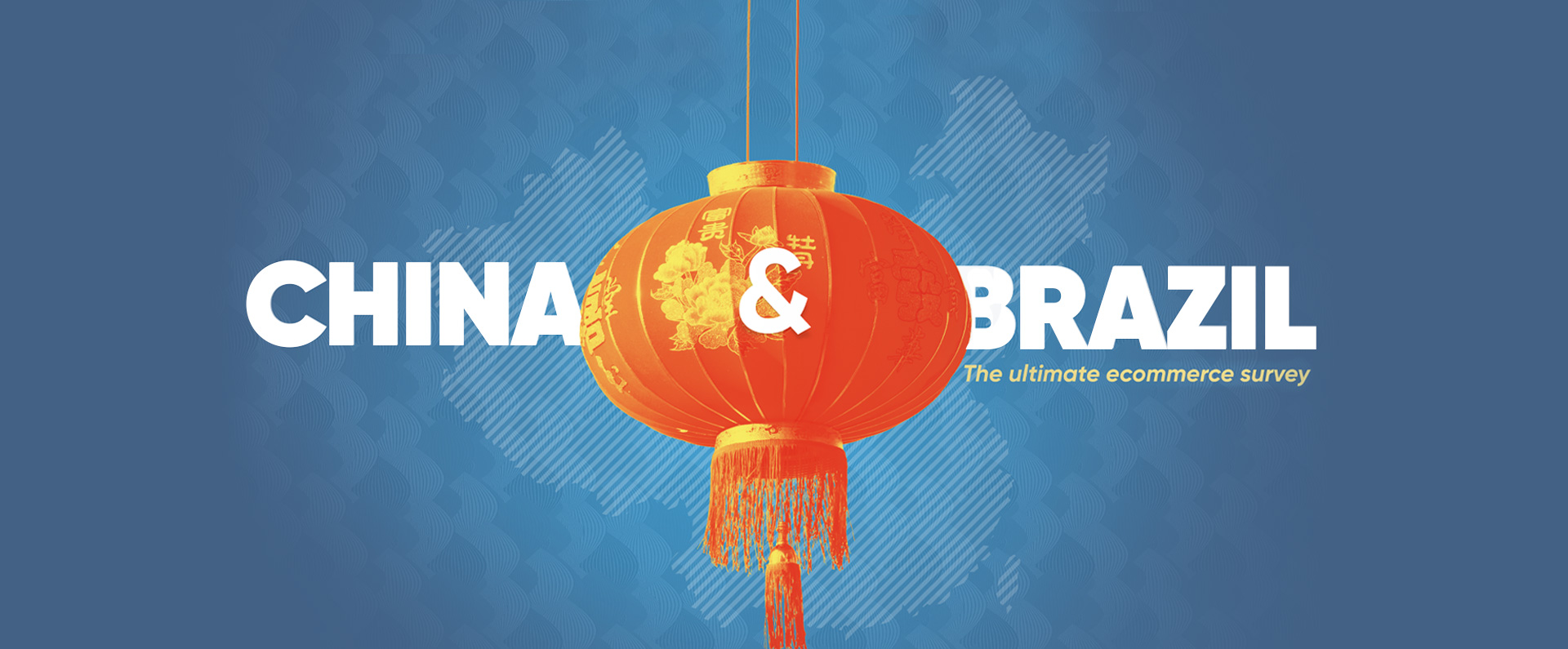Chinese ecommerce in Brazil: EBANX survey shows the Brazilian perspective towards Chinese products
December 18, 2017

CURITIBA, BRAZIL, December 18, 2017 – Created in China as an anti-Valentine's Day, Single's Day celebrated annually on November 11 has become a global top-notch e-commerce sales day with e-shoppers worldwide. Alibaba publicized sales revenue surpassing USD 25 billion on Single’s Day this year, reaching purchasing volumes of more than USD 1 billion per hour, exceeding the total revenue of Black Friday and Cyber Monday combined.
In Brazil, the Chinese e-commerce date has already captivated Brazilians' attention and their wallets, becoming an even larger anticipated discount shopping date than Black Friday and Cyber Monday. EBANX, a fintech headquartered in Brazil that processes Latin American local payments for international e-commerce websites, experienced 38% more total processed volume on Single's Day this year compared to the combined sales of Black Friday and Cyber Monday. Chinese merchants of the company saw a 138% increase in sales volume among Brazilian shoppers when comparing the Single's Day event of 2016 and 2017.
The massive reception and enthusiasm for e-commerce purchasing growth on Single's Day in Brazil propelled EBANX to discover what factors influence purchasing decisions between shopping with domestic e-commerce stores and Chinese e-commerce merchants. In late November EBANX conducted the online "China & Brazil - The Ultimate E-commerce Survey" [ http://insights.ebanx.com/Survey-China_vs_Brazil-Ecommerce-Scenario-2017.pdf ] with Brazilians that have purchased from Chinese e-commerce stores in the last 12 months. Brazilians were eager to share their opinions with 13,610 responses.
One of the main discoveries from this survey is that the Brazilian perception of Chinese products has improved significantly over the past five years. In 2012, 22% Brazilians did not know that they could buy from Chinese e-commerce stores. Furthermore, Chinese products were perceived as having a high probability of being fake or replicas, as reported by 17% of Brazilian respondents. Today, this number has diminished to a mere 3%. Trust in Chinese products by Brazilians is on the rise.
Nowadays, 42% of Brazilian e-shoppers strongly believe that Chinese products have a good cost-benefit appeal, whereas only 13% stated that this was their opinion five years ago. The “Made in China” stamp is prevalent throughout many product categories used and sold in Brazil. The massive presence of Chinese products in the nation is contributing to the rise of Chinese e-commerce sales. Many Brazilians stated that they believe more in the quality of Chinese products precisely because they see a heavy presence of them in the country.
Brazilians are even turning to Chinese e-commerce stores to learn about the latest product trends, as 85% of the respondents reported. The “Copy to China” to “Copy from China” transaction mindset is gaining ground among Brazilians as well, as the quality perception of Chinese products has also increased over the last five years in the country.
Buying online from the other side of the world and paying with cash
Another major discovery is that Brazilians prefer to pay for their online purchases from Chinese e-commerce websites using boleto bancário, a very traditional Brazilian cash payment method. A total of 59% of e-shoppers indicated this preference, whereas 41% prefer using other payment methods. Among the respondents, 73% have checking accounts, therefore access to a credit card.
Paying for cross-border online purchases with boleto bancário is proving to be a consistently selected and preferred payment method for Brazilians. Supporting this observation is the "Why are Brazilians Still Using and Preferring Boleto Bancário for Online Purchases?" survey [ http://hubs.ly/H08dfG80 ], conducted by EBANX in July 2017.
EBANX asked online shoppers that had used boleto bancário to pay for their online purchases if they had a checking account. It was reported that 71% of respondents did have checking accounts, hence they could access a credit card. This result showed that, even by having other options, Brazilians chose to pay in cash with the boleto.
The boleto bancário is the payment method of choice for Brazilians that purchase online with cross-border merchants in general and with Chinese e-commerce stores specifically. Since the entire Brazilian population pays for most of their utility bills via boleto, they are very familiar with the payment method. Brazilians trust and feel safe with making international online purchases with the boleto bancário.
And the Brazilian preference for cash payments goes even deeper: although the boleto can be paid through internet banking or mobile banking, the "China & Brazil - The Ultimate E-commerce Survey" shows that 58% of Brazilian online shoppers buying from China prefer to go to a local lottery store or to a physical bank branch and pay the boleto in cash.
Learn more about the Brazilian perception towards Chinese e-commerce stores and products by accessing the full "China & Brazil - The Ultimate E-commerce Survey" results at http://insights.ebanx.com/Survey-China_vs_Brazil-Ecommerce-Scenario-2017.pdf.
About EBANX
EBANX's end-to-end solutions effectively connect Latin American eager buyers with global sellers. The five-year-old fintech is headquartered in Brazil and offers over 100 Latin American local payment options to international e-commerce websites that want to expand their cross-border businesses throughout Latin America. The company has already enabled more than 27 million people in Brazil, Mexico, Argentina, Chile, Colombia, and Peru to access global products and services, as well as enabling global businesses to reach new audiences. For more information: https://business.ebanx.com/en/.
Related Releases
Where some of the biggest Chinese tech companies plan their business expansion to Brazil
May 23, 2017
EBANX director announced as a finalist of most prestigious ecommerce award in Brazil
July 1, 2019
EBANX and Visa expand strategic partnership in Brazil
September 24, 2020
Get in touch with our Public Relations office.
For press inquiries, company information, press releases and more, please fill out the form beside or contact our press team via e-mail: press@ebanx.com.